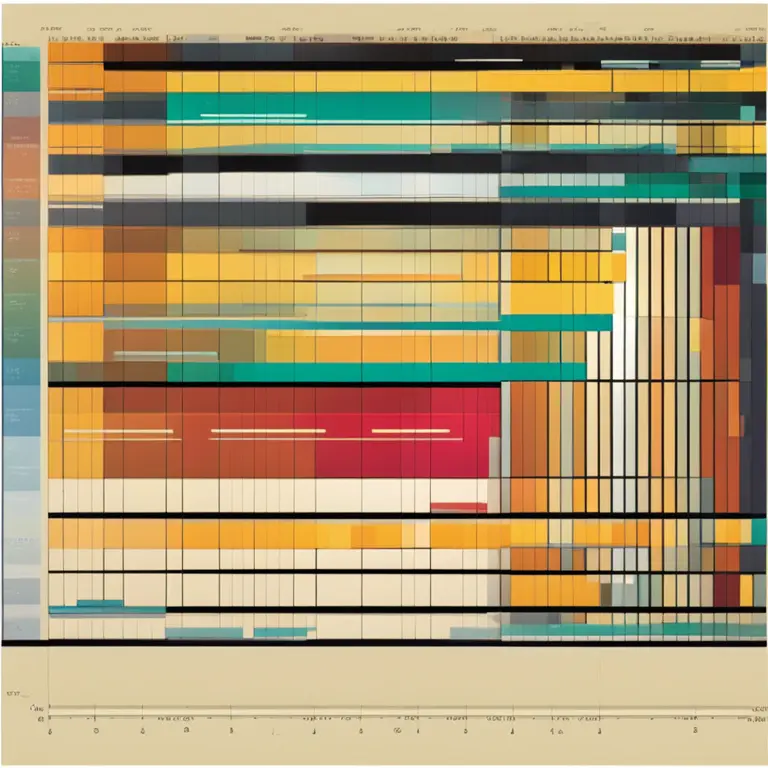
The Mechanics of Biorhythms: Bio-Patterns Explained
Delve into the world of biorhythms: Discover how these natural cycles influence your emotional, physical, and intellectual states.
article by Adrian Wallace
Introduction to Biorhythms
Biorhythms are based on the idea that our lives are influenced by natural mathematical cycles. These invisible rhythms are thought to affect our physical, emotional, and intellectual well-being, each following a specific cycle. The concept has been around since the 19th century, but it was in the 1970s that biorhythms became popular. With advances in technology and analytics, some enthusiasts believe that tracking these patterns can help in anticipating the fluctuating aspects of one's life and make informed decisions.

Three Primary Cycles
The theory of biorhythms identifies three critical cycles: the emotional (28 days), physical (23 days), and intellectual (33 days) cycles. Each cycle starts at a zero point at birth and oscillates between high and low phases throughout a person's life. The belief is that when a cycle is in a high phase, one might experience peaks in related abilities or moods, while a low phase may signify a potential downturn or reduced capacity in that area.

Tracking Biorhythms
Individuals can track their biorhythms using various methods, such as specialized software, apps, or charts. These tools usually require a person's birth date as the input to calculate and predict the different cycles. Though not supported by mainstream science, enthusiasts assert that tracking these cycles can serve as a guide for planning activities, from critical decision-making to physical activities.

Applications and Acceptance
While the scientific community remains skeptical about biorhythms, they continue to entertain some people who attribute significant life events or daily outcomes to these cycles. Proponents claim that understanding your biorhythms can enhance performance, relationships, and personal growth. However, it's essential to note that no empirical evidence supports the predictive power of biorhythms on an individual's day-to-day life.

Critical Perspectives
Criticism of biorhythms highlights the lack of rigorous scientific validation and the potential for confirmation bias – where individuals may only take note of the instances that support the biorhythm theory while overlooking disconfirming evidence. As with any belief system outside of mainstream science, it is recommended to approach biorhythms critically and consider them as one of many tools for reflection rather than a definitive guide to life.
Moving Forward with Biorhythms
As we push further into the future, the intersection of technology and holistic practices such as biorhythms may reveal new insights and tools. Advocates of this concept hope for more sophisticated applications that integrate artificial intelligence and big data to provide personalized insights, possibly increasing the precision and influence of biorhythm calculations.
Published: 1/30/2024
Modified: 1/30/2024
More predictions
Come back here soon to learn more about yourself and your future


The Rhythms Within: An Insight into Biorhythms
Discover the science and philosophy behind biorhythms, the cyclical patterns our bodies follow, in connection with our physical, emotional, and intellectual states.


Biorhythm Compatibility: Sync Your Cycles for Harmony
Discover the intriguing connection between biorhythms and relationship harmony. Learn how syncing your biological cycles can foster deeper compatibility.


The World Of Rhythms: A Guide to Biorhythms
Delve into the world of biorhythms to comprehend how they influence our physical, emotional, and intellectual states. Discover their significance and implications for your day-to-day life.